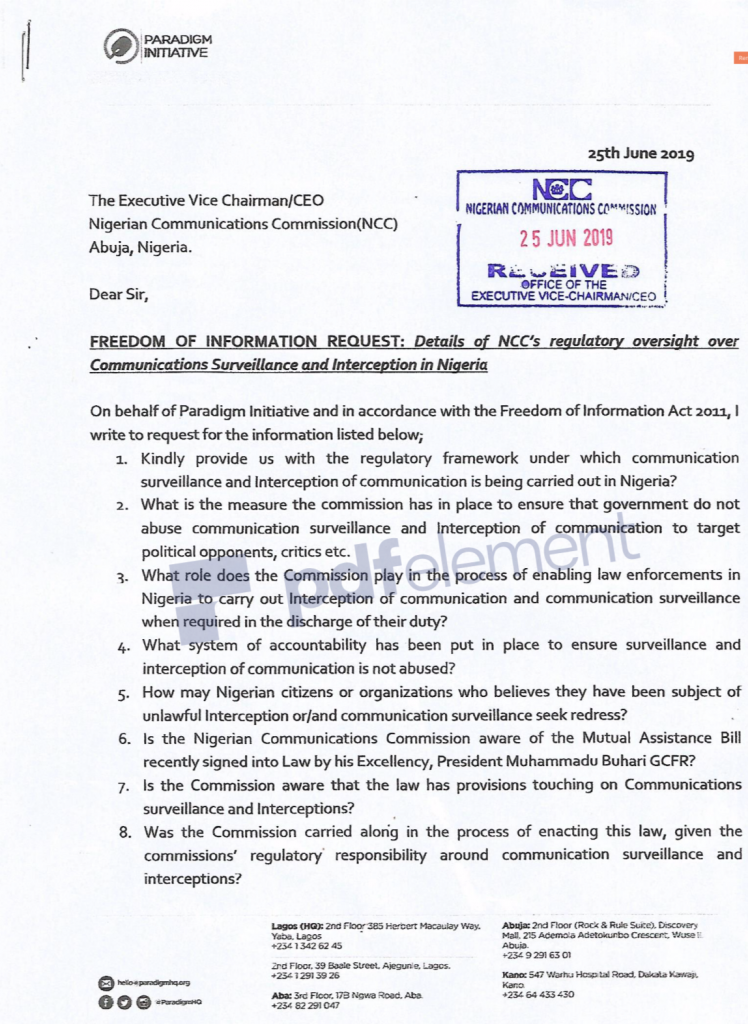Paradigm Initiative has asked the Nigerian Communications Commission (NCC) to provide it with information on its role in Nigeria’s surveillance and interception programmes. Relying on the Freedom of Information Act 2011, the pan-African Digital Rights and Digital Inclusion organization is requesting information on the role the regulatory agency plays in enabling law enforcement in Nigeria to carry out communication surveillance and interception of communications in the discharge of their duties.
In a copy of the request sent to NCC and seen by this media house, the organization has, among other requests, asked NCC to disclose what measures it has in place to ensure that government does not abuse communication surveillance and interception of communications to target political opponents and critics, among others. It also asked the Commission to disclose the regulatory framework under which communication surveillance and interception of communications is being carried out in Nigeria.
Speaking on the request, Adeboye Adegoke, Program Manager, Digital Rights, Anglophone West Africa at Paradigm Initiative, says “this is not the first time Paradigm Initiative is engaging the Nigerian government on its communications surveillance and interception activities. Our goal remains to ensure that surveillance is accountable and transparent. We are equally excited by the prospects of technology to help law enforcement fight criminality, but we are at the same time wary of how such technology can serve as a tool in the hands of the incumbent to abuse citizens’ right to privacy or spy on the opposition and critics of government’’.
On what triggered this latest request, Paradigm Initiative’s Director of Programs, Tope Ogundipe, said, “In a Bill recently signed into law by President Muhammadu Buhari, the Nigerian Government will henceforth allow foreign governments to spy on and intercept the communications of Nigerian citizens.” The Mutual Assistance in Criminal Matters Law makes provision for Nigeria to assist foreign governments to carry out surveillance and intercept communications of suspects during criminal investigations. “The Nigerian Government can no longer deny it has the capacity to carry out communications surveillance and interception, it would be great to see what safeguards are in place around this, given the dangerous dimensions it can take”, Ogundipe concluded.
The Nigerian Communications Commission (NCC) has seven days within which it must respond to the request according to the Freedom of Information Law 2011.


